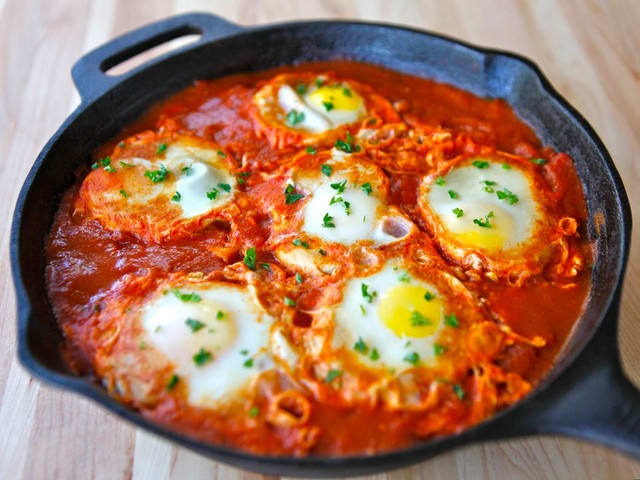
Almost everyone I know is talking about the economy and looking for ways to save money. In my house we try to rein in some of the expenses by being more prudent about what we eat. That doesn’t mean I’ve lowered my standards nor would I ever buy poor quality ingredients. And my family always has more than enough to eat.
Being frugal just means carefully considering what you purchase and thinking about the best ways to satisfy your family while staying within a reasonable budget. It means being smart about what you buy and how you cook.
Come to think of it, whether times are good or not, isn’t it always wise to get the most value for our money?
I don’t mean to sound glum and somber. Just the opposite, in fact. I regard stretching a food dollar as a challenge and an opportunity to get creative with recipes. I also know that some of the best ways that save money also form the cornerstones of a healthy diet.
Here are some suggestions:
• Eat less meat. Kosher meat, always more expensive than non-kosher, is even costlier now. Eating less of it helps you cut down on salt, saturated fat, cholesterol and calories. Bulk up your meals with healthy, filling side dishes such as steamed or sautéed farro, barley, quinoa, brown rice and other whole grains, as well as vegetables.
• Use small amounts of leftover meat more effectively. Cut up chicken, turkey and beef are terrific fillers for omelets, frittatas, casseroles, salads and stir fries. Give these dishes more flavor by including chopped fresh herbs, minced fresh chili peppers and tangy ingredients such as chopped olives, sun dried tomatoes or capers.
• Choose cheaper so-called “lesser cuts” of meat: lamb breast, shanks and short ribs, for example. Use chuck, rather than brisket, for pot roast. You can even use meaty bones to your advantage. Bones give long-simmering dishes (such as cholent and soup) hearty flavor without too much actual meat.
• Serve more meatless meals: pasta with white beans and sautéed escarole or other vegetables, for example. Vegetable-cheese lasagna. Or casserole dishes made with whole grains and legumes — these are filling and they also provide needed nutritional benefits: meatless chili served with rice and cheddar cheese; farro casserole with peas or beans; bulgur wheat with lentils and fried onions, and so on. You can add flavor, texture and color by including dried fruit, nuts and vegetables or tossing in fresh herbs or spice combinations.
• Use less expensive fish. Mackerel and bluefish are loaded with quality omega-3 fatty acids and are robustly flavorful. Bake them with juicy tomatoes and fresh herbs or serve them with a simple sauce that you can make by mixing together non-fat yogurt, Dijon style mustard and prepared white horseradish. Tilapia is also relatively inexpensive; use it in place of costlier halibut and sole. Buy smoked salmon bits and pieces to use in omelets, pasta and so on. No need to buy expensive slices if you’re going to cut the fish up anyway.
• Serve eggs more often. For the money, it’s hard to beat eggs’ nutritional value, and they are among the most versatile of foods. There’s omelets and frittatas, of course, but also exciting dishes such as Huevos Rancheros (burritos topped with eggs, salsa and cheese) or Shakshouka (Peppers and Eggs), a spicy mélange of braised peppers, onions and tomatoes topped with sunnyside eggs (both recipes are in my book, Hip Kosher).

Ronnie Fein has been a freelance food and lifestyle writer since 1980. She currently writes regular features for the food and community sections of daily newspapers and has written articles for Newsday, Cook’s Illustrated, Consumer’s Digest, Connecticut magazine, and many other publications. She operates the Ronnie Fein School of Creative Cooking in Stamford, Connecticut and is the author of three cookbooks, the most recent is Hip Kosher (DaCapo, 2008).
The words of this author reflect his/her own opinions and do not necessarily represent the official position of the Orthodox Union.
